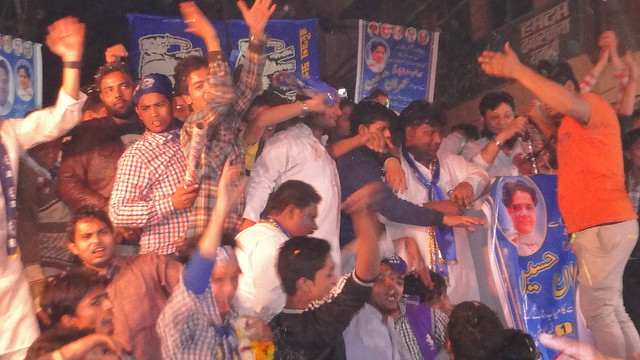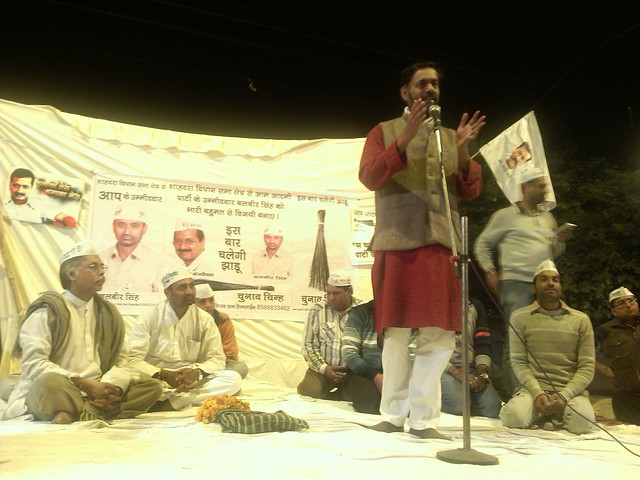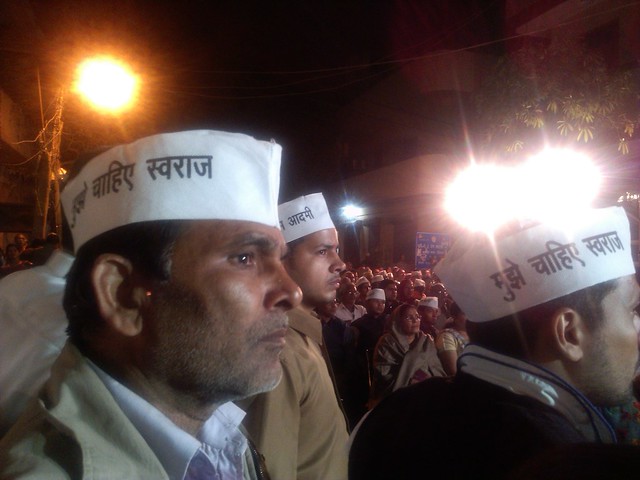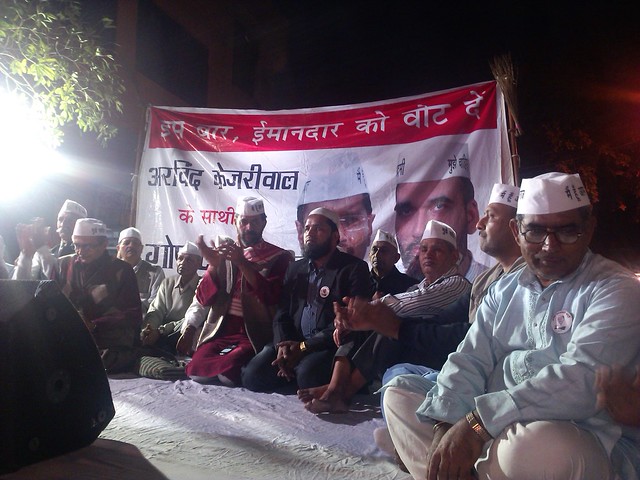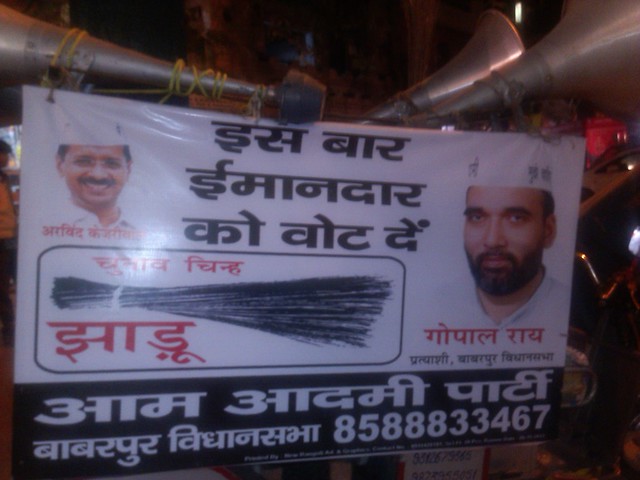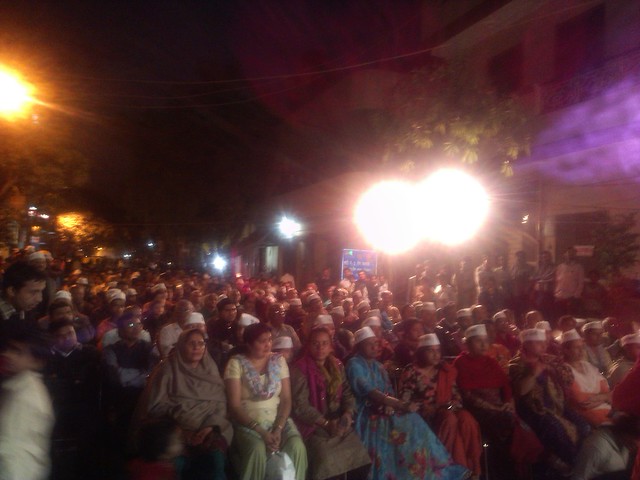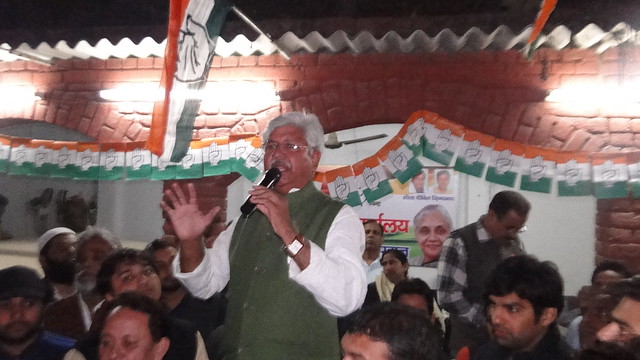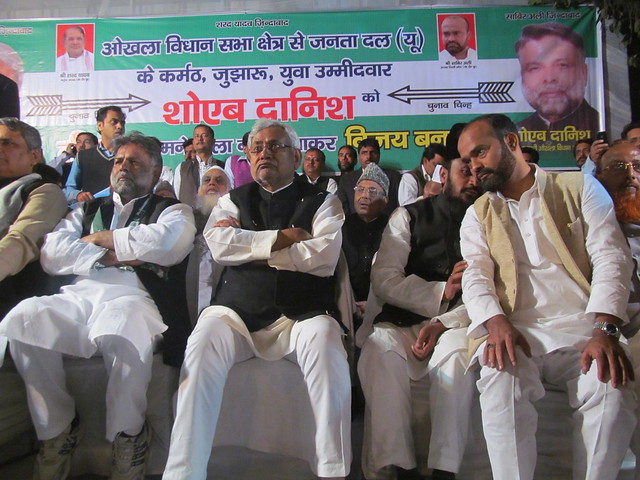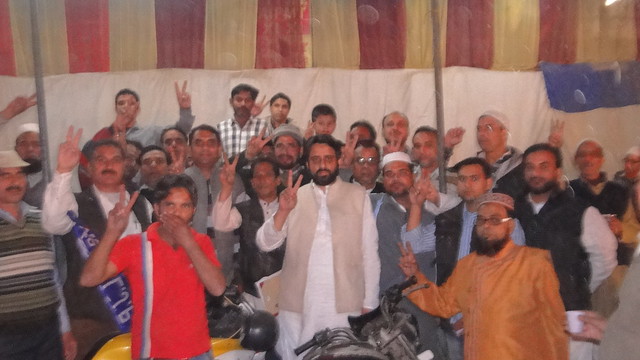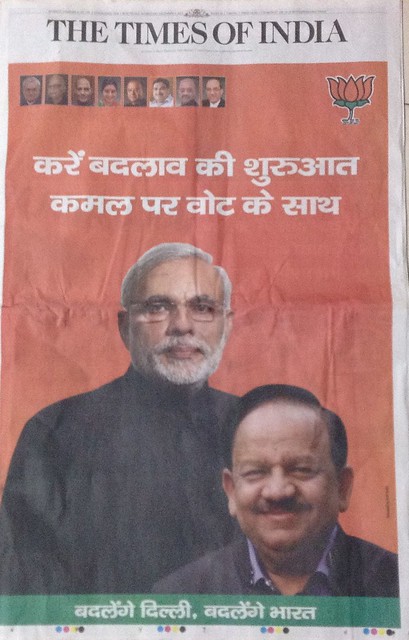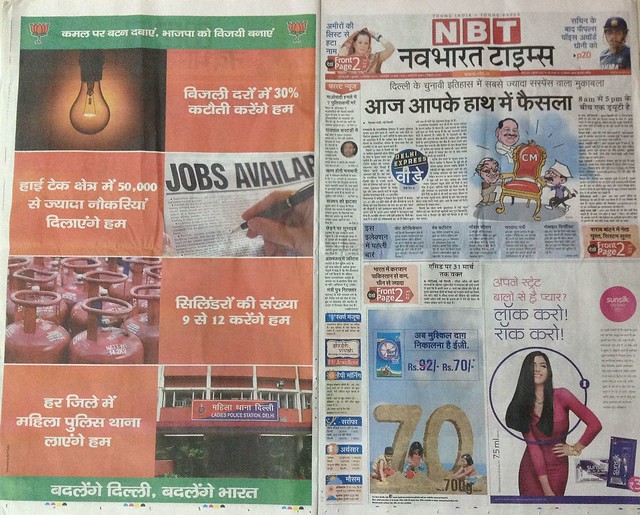“So called secular politics reduces the concerns of Muslims to problems which are exclusively Muslims. So the entire thinking revolves around the question of security and identity, as if Muslims do not need water, as if they do not need electricity, as if they do not need education and health.”
By M Reyaz, TwoCircles.net,
New Delhi: Almost all the opinion polls, have accepted that there is “AAP wave” and most are even speculating that they will emerge as king maker at least, even if they don’t get to form the government. Aam Aadmi Party's latest internal survey, however, says that they will win 38-50 seats, and thus will form the government with comfortable majority in the 70 members Delhi Assembly.
But what does AAP has to offer to Muslim community besides symbolism. Besides stress on primary education, arbitrary of arrest of Muslim youths, funeral ground and Wakf boards – which you find in the manifestos of most political parties – there was hardly anything substantial in the AAP manifesto. What is their stand on the question of reservations for Muslims, anti-communal violence bill, etc?
![]()
TCN spoke with Yogendra Yadav on his way back to home after a series of Jan sabhas on Sunday night.
In his appearance, his habits and his speech Yogendra Yadav, leader and core strategist of the Aam Aadmi party, comes across more as a Jhola carrying social activist, rather than the general politician prototypes, we are used to. In Jan-sabhas you often hear him saying “verify and cross check, what I am saying, and if you find that I am lying then don’t vote for us. But if you find us right, not only vote for us, but also convince others to vote for AAP,” that leaves you wondering can politician be so honest as well?
Professor Yogendra Yadav refuted the question that the manifesto does not adequately deals with the Muslim community. He says, “I am surprised you say so as the allegations on us has been that we have given too much stress on minorities.”
He, however, clarified that AAP is “trying to move beyond two kinds of politics that dominate any discussion on the Muslim question towards a third kind of politics which moves beyond pseudo-nationalism and this completely bankrupt form of secularism which being practiced.”
![]()
Minutes into conversation, and you start realizing that you are not talking a politician with little understanding, but with a political scientist, with years of experiences behind him.
Yadav, who is a senior fellow at CSDS, equally targets the Hindutva “nationalistic” jingoism of BJP as much as the “the so called politics of secularism” of parties like the Congress, Samjwadi Party, RJD and others who reduce them to mere “vote banks”.
He says, “On the one hand we have politics of so called nationalism which refuses to see any distinction, which refuses to acknowledge and recognise that different communities have specific concerns, problems, deprivations and disadvantages.”
“That politics of nationalism wants to homogenise the country and see any acknowledgment of specific problems of a community as a deviation from and betrayal of nationalism,” says Yadav, a well-known Psephologist.
![]()
Targeting parties that practice the “so called politics of secularism,” he says that their “politics largely keeps Muslim communities off stage and try to reduce the Muslim question to questions which are Muslim specific.”
The political scientist in Yadav says, “So called secular politics reduces the concerns of Muslims to problems which are exclusively Muslims. So the entire thinking revolves around the question of security and identity, as if Muslims do not need water, as if they do not need electricity, as if they do not need education and health.”
Yadvav clarifies that the Aam Aadmi party is trying to chart out an alternative form of politics, vis a vis Muslims. He says, “We want to practice the politics which lives up to the Constitutional ideals of secularism in true spirits and letter and that would mean addressing specific concerns of the Muslim community without appealing to the communal feeling.”
![]()
Acknowledging the fact that Muslims are the largest and the most disadvantaged minority of our country, he adds, “They face a series of problems most of which are problems which they share with Indian citizens, but some of which are very specific to Muslim communities.”
“They face problems of any disadvantaged Indian communities like Dalits, like others. These are problems of employment, problems of lack of development, problems of lack education, problems of lack of skill and lack of access to basic infrastructure, which is not something uniquely. This is something they share with most other disadvantaged communities of this country,” he elaborates.
But also agrees on the "community specific problems". “There are some problems which are very specific to Muslims. One there is a question of identity. As a Muslim do you need to be consistently accountable and answerable for your nationalism, which is related to the question of suspicion that Muslim always feel surrounded by,” he underlines, adding, “There is a real issue of security and the discrimination they face from government agencies, from security forces,” which he admits, leads to alienation.
Asked specifically on the question of reservation for Muslims, he said that the matter pertains to central government and his party has not seriously yet pondered on the subject. But in his personal capacity as a political scientist, he believes that “blanket reservation” for the whole community would be “counterproductive,” but acknowledging the fact that most Muslims come from OBC categories, he believes that those should be included as a sub-category.
![]()
The AAP manifesto also talks about speedy trial of those youth arrested in the name of arbitrary terror. AAP promises to take actions against those police officers involved in fabrication of cases.
When confronted that AAP is only contesting the Assembly elections at the moment and the manifesto can only be a tempting promise at best, since Delhi Police does not fall under its jurisdiction, Yogendra Yadav said that he is aware of the fact that the police does not come under the jurisdiction of the Delhi Government, but that cannot absolve them from their responsibilities. He said that the “government definitely has some say,” and they will make sure that innocents are not unjustly harassed.
Asked to comment of the proposed anti-communal violence bill he said that while "the idea is noble", the bill incorporates whole lot of paraphernalia that he thinks was uncalled for.
He, however, reiterated the fact that the government and different agencies need to take all steps required to see that the perpetrators of heinous crimes like communal riots are brought to justice and that the officers are held accountable for the acts of collusion or omissions in their discharge of duties.


